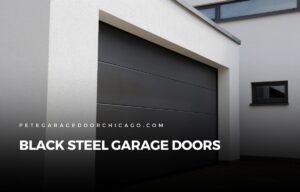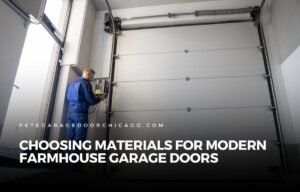Types of Garage Door Springs
Some of the most critical components of your garage door system are the springs. They play a crucial role in helping your garage door open and close smoothly.
However, not all garage door springs are the same.
In fact, there are several types of garage door springs, each with its own unique characteristics and advantages. In this guide, we’ll explore the different types of garage door springs and help you understand which might be best for your needs.
Types of Garage Door Springs
Torsion Springs
Torsion springs are among the most common types of garage door springs. These springs are typically mounted above the door opening and are designed to twist and unwind as the door is opened or closed.
Torsion springs offer smooth and controlled movement, making them a popular choice for residential garage doors.
Extension Springs
Extension springs are another common type of garage door spring. Unlike torsion springs, extension springs are mounted on either side of the door tracks and stretch or extend as the door moves.
Extension springs provide lifting force by stretching and contracting, helping to support the weight of the door.
Torque Master Springs
Torque master springs are a variation of torsion springs that are housed within a steel tube. This design helps protect the springs from damage and reduces the risk of injury in case of spring failure.
Torque master springs are often found in residential garage doors and offer a sleek and compact design.
EZ-Set Torsion Springs
EZ-Set torsion springs are designed for easy installation and adjustment. These springs feature a unique winding mechanism that simplifies the process of tension adjustment, making them an attractive option for DIY enthusiasts and homeowners looking for convenience.
Steel Rolling Door Springs
Steel rolling door springs are specifically designed for commercial and industrial applications.
These heavy-duty springs are capable of supporting large and heavy rolling doors commonly found in warehouses, factories, and commercial buildings.
Choosing the Right Springs for Your Garage Door
When it comes to selecting the right type of garage door springs for your needs, several factors should be considered:
Door Size and Weight: The size and weight of your garage door will influence the type and strength of springs required to support it effectively.
Frequency of Use: If your garage door sees frequent use, you may require stronger and more durable springs to withstand the repeated opening and closing cycles.
Budget: Different types of garage door springs vary in cost, so it’s essential to consider your budget when making a selection.
Safety Features: Some types of garage door springs come with additional safety features designed to minimize the risk of injury in case of spring failure. Consider opting for springs with enhanced safety features for added peace of mind.
Maintenance Tips
To keep your garage door springs in top shape, here are a few maintenance tips:
- Regularly inspect springs for signs of wear and tear.
- Lubricate the springs annually with a garage door lubricant to reduce friction and prevent rust.
- Check the balance of your garage door periodically by manually lifting it halfway and seeing if it stays in place.
Ensure Your Garage Door's Longevity with Expert Care
Regular care and attention can extend the life of your springs and, by extension, your garage door.
However, when maintenance isn’t enough and it’s time for repairs or replacements, it’s important to call on trusted professionals. This is where Peter and Sons come in.
With their expertise in garage door maintenance and repair, Peter and Sons can provide the reliable service needed to keep your garage door in top condition.
Whether you’re dealing with worn-out springs, a malfunctioning garage door opener, or just in need of routine maintenance, their team has the skills and experience to get the job done right.
Remember, while DIY maintenance can go a long way, the safety and reliability of your garage door system are paramount. For those tasks that require a professional touch, don’t hesitate to reach out to Peter and Sons.
Contact us today for a free quote and ensure your garage door springs, and all other components, are in the best hands.



